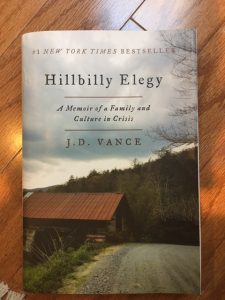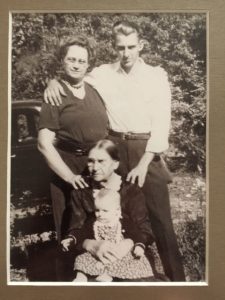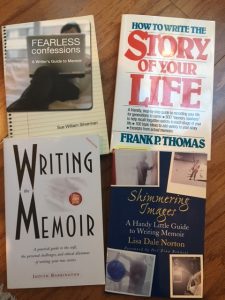I recently started reading Hillbilly Elegy by J. D. Vance. Change the names, and it could be my memoir!
Yep. Roots in the hills of Eastern Kentucky. An old home place—where my paternal grandparents lived—in the holler at the head of Old House Creek. Granny Butcher, Granny’s mother, lived there, too. Here’s a picture taken in the yard there when I was a baby, me in Granny Butcher’s lap, with Dad and Granny standing.
To make Vance’s memoir my own would require a lot of tweaks. For example, it was my parents who didn’t finish high school. We both graduated from state universities in Ohio, but he went on to become a lawyer while I got a Ph.D. in psychology. Still, the broad picture is the same: unbreakable family ties, work-related migration from Kentucky to Ohio, and the emotional upheaval of upward mobility.
Which brings me to the point: good memoir evokes a strong emotional response in the reader. The basis of my response to Hillbilly Elegy is obvious, but there must be more to it than personal relevance. It didn’t become a bestseller on the basis of me alone! I was strongly affected by West With The Night (Beryl Markham) and Glass Castle (Jeanette Wall) without nearly so much shared history.
When you sit down to write memoir, start by asking yourself, “Why would anyone else care?” What is the emotional chord I am trying to strike? Horror or humor? Nostalgia or dysfunction?
And then, get some guidance. Writing good memoir draws on many of the same skills required for writing good fiction. But there are some issues and concerns unique to telling one’s life story. There are tons of good books out there. Here are a few samples.
Memoir is the fastest growing genre among writers today. But if writing it isn’t for you, at least read some. And ask yourself, “Why do I care?”


